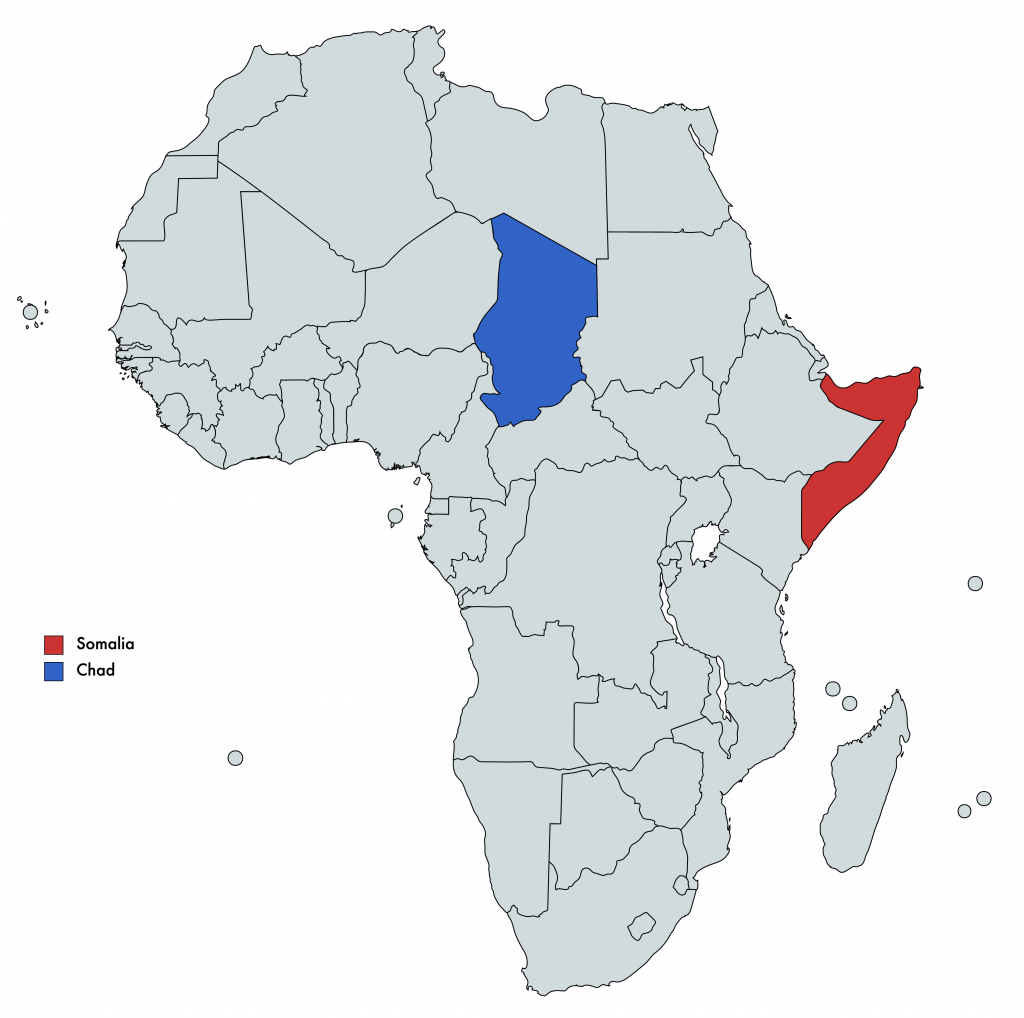
Politics in Africa Update April 10- April 17, 2021 In this section, we select and summarize several key political developments that occurred in the last week, also giving brief background to the story. This week's highlighted events are in Somalia and Chad.
1. Somalia’s Presidential Term Extended by Two Years, Breaking Political Deadlock But Raising Serious Concerns
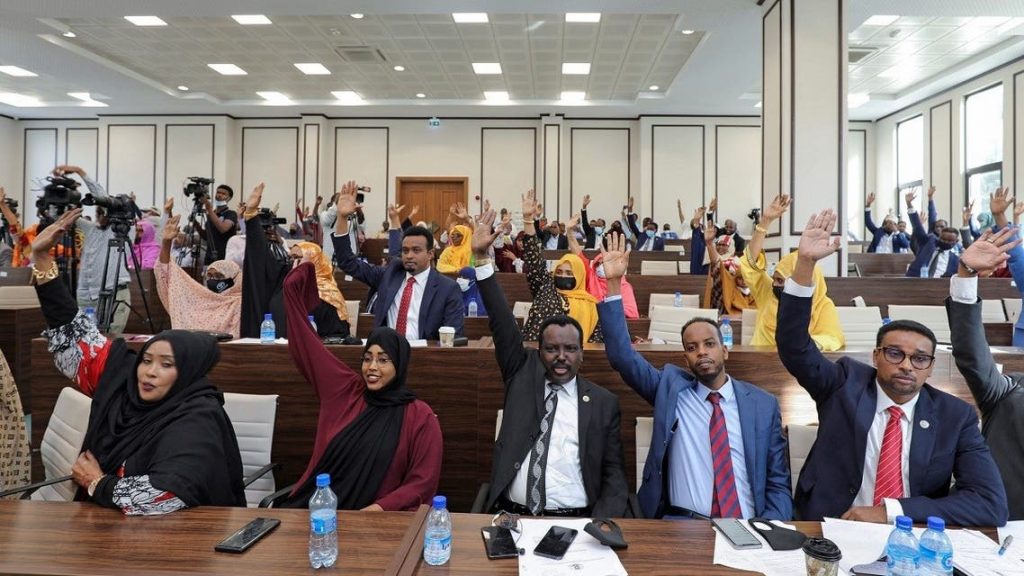
SUMMARY:
Somalia’s government has voted to extend the term of current President Mohamed Abdullahi Mohamed by two years, a move met with criticism by many within the country and internationally. President Mohamed’s time in office should have ended in February 2021, when the country had planned to hold a direct election with universal suffrage for the first time since 1969. Somalia’s President was previously chosen by members of the Somali Parliament, who in turn are selected by a limited electorate of the country’s elders. Threats from civil war and COVID-19 have twice prevented the implementation of universal voting, and this recent vote to extend the presidential term is seen as a threat to democracy in the fragile nation.
Somalia is organized into 5 states which are under the Federal government’s power but also enjoy a significant degree of autonomy within their own region, as well as veto power to prevent major changes in the nation.Two of the five states disagree with the proposed universal voting, causing a political deadlock in which no newly-formatted (or any) election could be held. By voting to extend the current term and thereby push back elections for another two years, the legislative Lower House has overcome this deadlock but risks serious repercussions. The two dissenting states are likely to retort by decreasing cooperation with the federal government, which could cause serious security risks if active terrorist groups are able to take advantage.
The majority of the Lower House of Parliament views this as a way to avoid a power vacuum and hopefully prevent a return to the chaos and violence that has filled the country’s past. Many in Somalia also do not like the international condemnation that has come from Europe and the United States; they view outside opinions as an implication that Somalia cannot handle its own affairs. The government now faces a lengthy process of registering all adults to vote in preparation for the future, though the opposition from the two dissenting states will make this difficult.
As is frequently the case with politics in Africa, this will be a struggle between consolidation of power around a single figure and a truly democratic government.
MAJOR FIGURES INVOLVED:
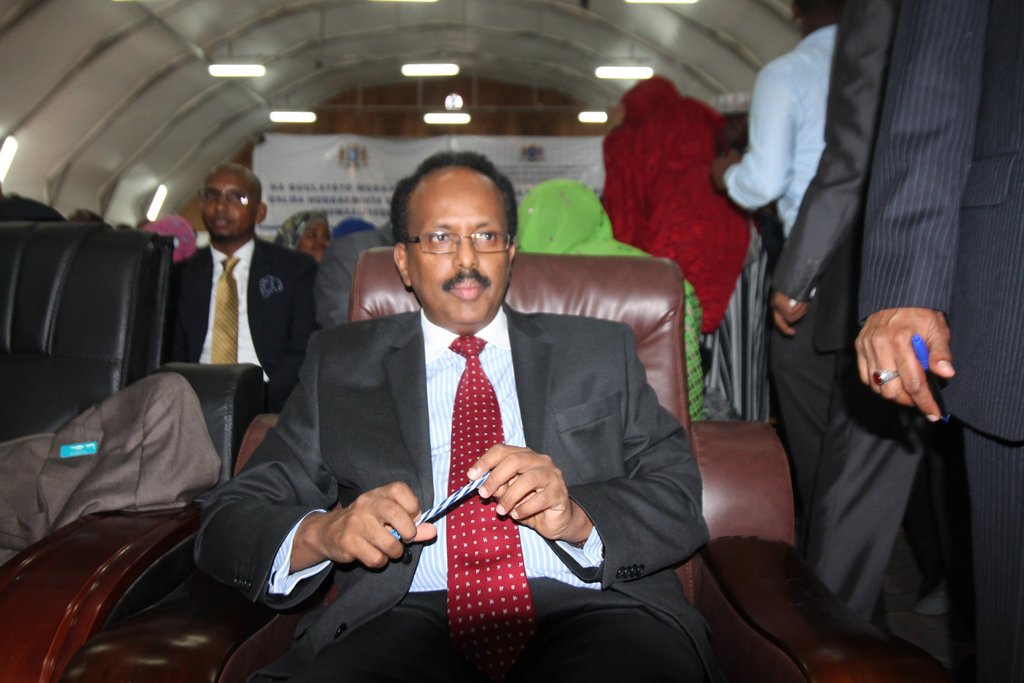
Mohamed Abdullahi Mohamed is the current President of Somalia, elected to a four year term in 2017 that has now been extended until 2023. Known as Farmaajo (short for formaggio, the Italian word for cheese, due to his love of the food), President Mohamed previously lived in the United States for over 20 years and was a dual citizen until renouncing his US citizenship in 2019. He served as the Prime Minister of Somalia for 8 months in 2010 before disagreements with other politicians forced his resignation. While some of his fiscal reforms have been praised, accusations of violence against political opposition and protestors, as well as decreased press freedom, have marred his presidency. International relations and politics in Africa have also been difficult, with Mohamed officially cutting ties with Kenya and expelling diplomats after unproven claims of interference in Somalia’s internal affairs. Many have criticized his move to seek and gain a term extension, with comments ranging from disapproval to calling it a coup attempt.
2. Internal Violence Increases in Chad as US Diplomats Leave the Country
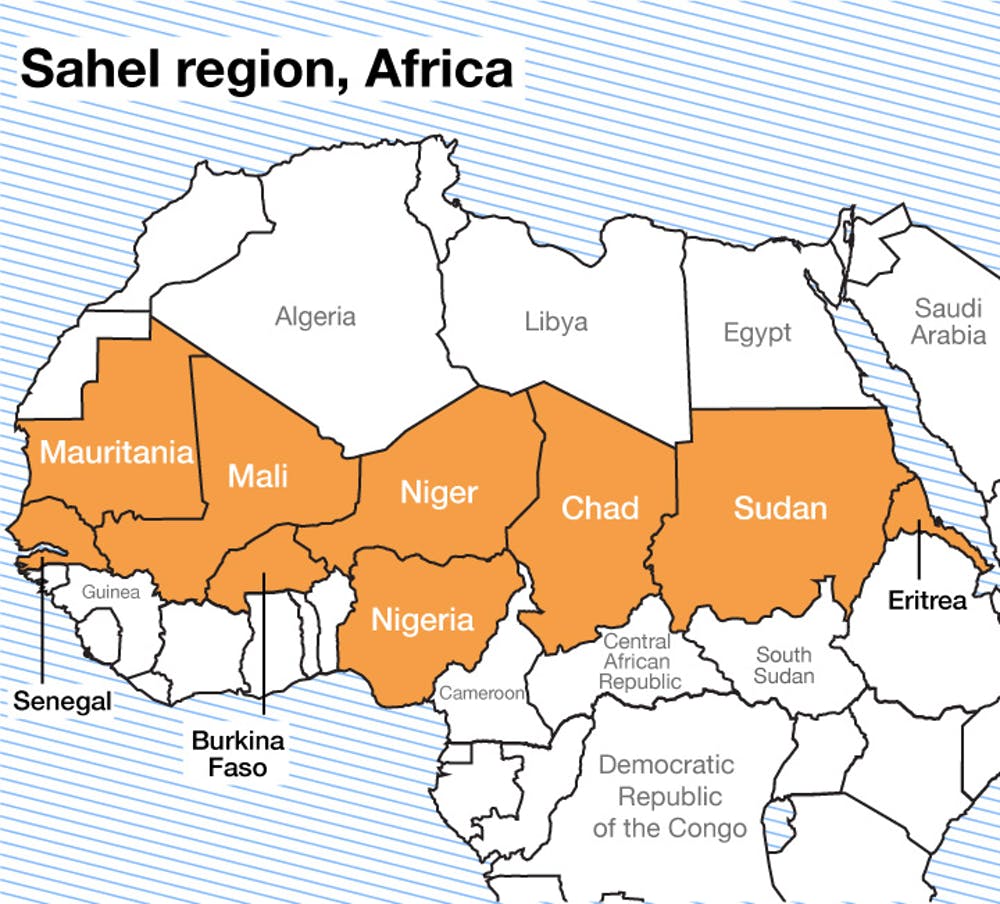
SUMMARY:
The United States has ordered the evacuation of all non-essential diplomatic personnel as armed groups advanced towards the capitol city of N’Djamena. While the country has a long history of violence, the advancement of two large groups of rebels towards the capitol city is not a typical event and is a cause for concern. The government of Chad announced that one of the groups has been defeated, but further threat remains.
Chad has a long history of intercommunal violence, and is dealing with hundreds of thousands of displaced persons due to its own internal conflicts and those in the neighboring Darfur region of Sudan. Due to politics in Africa and a complicated history, there does not seem to be a quick solution to this displacement. Additionally, the threat of violence from the terrorist group Boko Haram has drawn the military attention of Chad and many of the other nations in the Sahel region.
This particular bout of armed violence can be traced to when the militant group FACT attacked government outposts in northern Chad on the day of the country’s 2021 presidential election. The current President, Idriss Déby, is expected to have secured another victory in this election. Déby has been in power for over 30 years since a violent coup in 1990. Under President Déby there have been serious human rights violations in the past decades, including suppression of political opposition, bans on public demonstration and social media, and frequent extrajudicial killings.
Chad is an important player in politics in Africa, especially in counter-terrorism efforts throughout the Sahel region. Chad contributes thousands of troops to ongoing conflicts in Mali and other areas. Because of this, Chad receives significant international funds to develop its security forces. This has allowed the government under Déby to expand its internal security forces as well as those fighting abroad, resulting in increased suppression of political opponents and the people of Chad.
There are a large number of rebel groups currently operating in Chad, most of which are fighting to overthrow the government or establish their own regions of influence. Some of the larger groups include the UFDD coalition, FACT, SCUD, and RDL. Because of the high number of armed groups, travel throughout the country is advised against by most foreign nations.
UPDATE:
President Déby was killed in a confrontation with the FACT rebel group on April 20. He had a long history of leading his soldiers from the front lines, and was injured during the conflict before succumbing to his wounds hours later. It is unclear at this time if this happened during the initial battle that had been declared a victory for the government troops, or if a second engagement occurred afterwards. President Déby’s death will bring further uncertainty and violence to Chad, which is now without a leader and will need a new President for the first time in 30 years. The effects of this on politics in Africa will be significant, and the situation will be closely monitored moving forward.
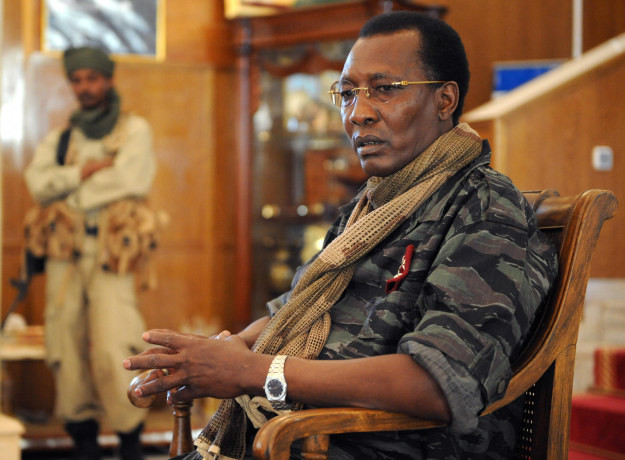
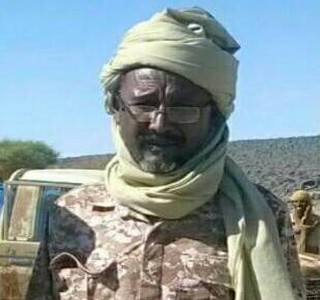
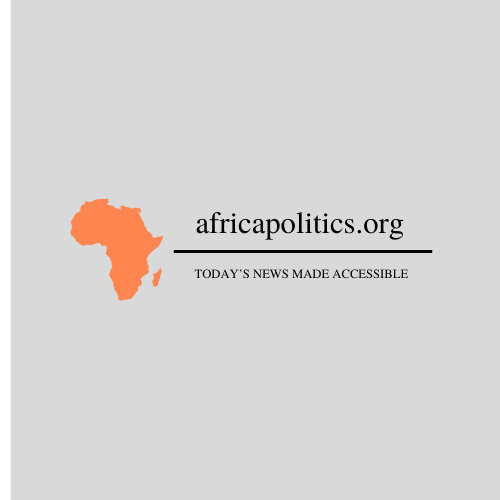
Stay tuned for more weekly African politics updates, as well as more in depth analyses of individual nations’ political histories and current situations. Please leave any thoughts you have below, or send an email to get in touch with us. Thank you!
